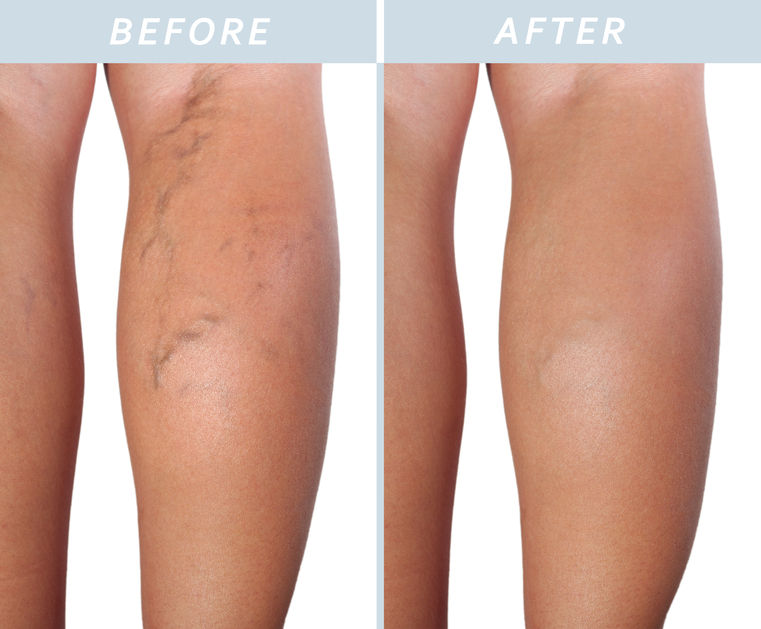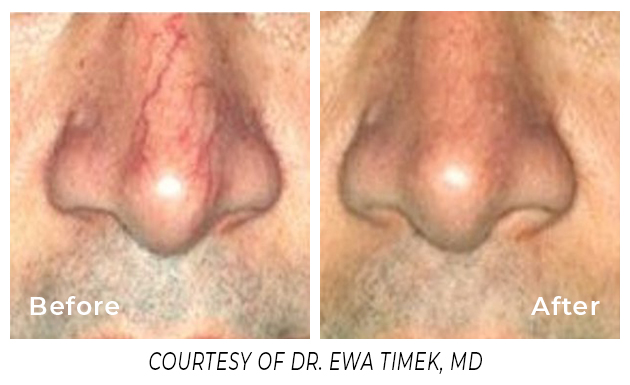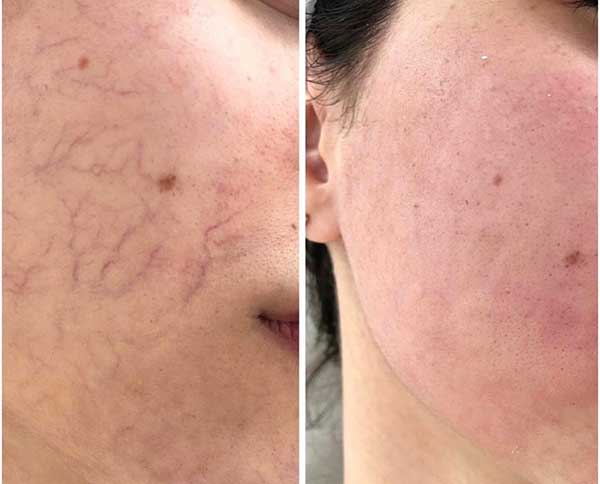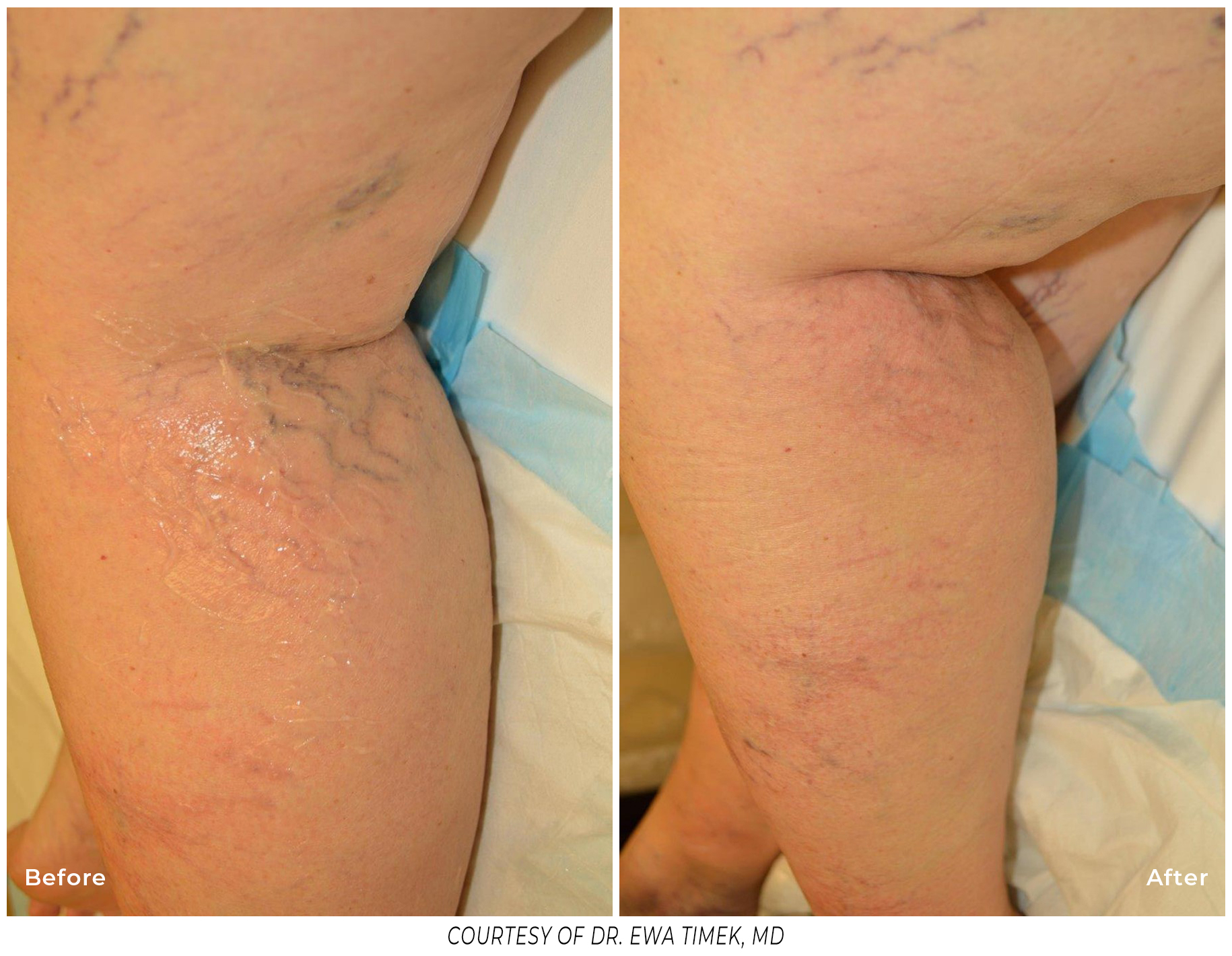Long Pulsed YAG- Vascular reduction
What is a Long Pulsed YAG (LPY)
The 2940nm Long Pulsed YAG Laser allows the practitioner to precisely treat visible vessels, broken capillaries, spider veins, and vascular lesions by using laser energy. The treatment is tailored to match one’s skin condition and desired result. All skin areas can be treated with the LPY laser.

What is unique about LPY /What does it do?
The Spectrum’s long pulsed Yag laser will diminish the appearance of existing veins on the face and legs. Once the laser light is applied to the skin, it enters the vein, where the energy from the laser is absorbed and the vein walls collapse and seal shut, eliminating the vein’s appearance on the skin. Eliminating veins with the long pulsed Yag laser is quick and effective.
Treatment Preparation

Pre-treatment
How long does a treatment take?
Depends on size of area, each area can take 15 minutes or less.
Post Leg Vein Treatment Instructions:
- Avoid sun exposure and wear SPF 30 sunblock for one month after treatment on all
treated areas that may be exposed to the sun. - Cold compresses may be applied to reduce redness and swelling.
- Please call us at the first sign of persistent pain or blistering.
- Use support hose 20-30 psi worn continuously for three to five days. (You may
purchase these at a medical supply store or pharmacy.) - Treatment area should be gently washed twice per day with tepid water and mild
soap.
Post Treatment, Do Not:
- Exercise for three days after treatment.
- Use alcohol, aspirin, Advil, or any blood thinners for five days.
- Take hot showers, baths, use hot tubs or saunas for five days.
Post Treatment Expectations:
- Expect some redness and swelling, which may convert to “cat scratch” scab for 8-12
weeks. - Leg vein resolution usually takes about 8-12 weeks. At the end of this process, some
vessels may be gone while others may be lighter or not affected.
Laser Vein Pre-Treatment Instructions:
- Discontinue medications or supplements that may thin your blood one week prior to vein treatments to minimize bruising and improve the success of your treatment. This includes fish oil, flax seed oil, Vitamin E, ginkgo biloba, antiinflammatory medications (ibuprofen, Motrin, Aleve), and red wine. If you are taking aspirin electively and not upon the advice of your physician, then you may stop it for 48 hours prior to your treatment. Do not stop aspirin if prescribed or recommended by your physician.
- You may wish to bring a pair of shorts to wear during your treatment if you are having your legs treated.
- If facial veins are being treated, there may be minor bruising and/or swelling following treatment. This can typically be covered using make-up. Plan accordingly since your face may show slight evidence of the laser treatment for a week or more.
- If leg veins are being treated, there may be minor bruising, discoloration, and welting over treatment sites. Larger leg veins may appear bruised for a period of time after treatment. Full results can take weeks or months to be realized. Plan and schedule treatments accordingly, allowing for healing time and time for your treatment results to evolve to completion. The best time to treat leg veins are in fall, winter and spring when you are less inclined to wear shorts or be exposed to sun.
- Plan treatments allowing for a period of no sun exposure, vigorous activity or use of hot tubs, saunas or spas for 48 hours after treatment.

When will I see results?
How long do they last?
Who is a good candidate?
Candidacy for long pulsed YAG laser treatments are dependent upon many factors, including age and overall health, the extent of your spider or varicose veins, your symptoms, your goals, and what your provider expects your condition to be in the future. However, the most common candidates are those with cherry angiomas, matted and superficial vessels, or visible spider veins.

Don't take our word for it

Elizabeth

Joanne Douglas

Iman Alahdel

Deirdre M

Antonia Bencosme

